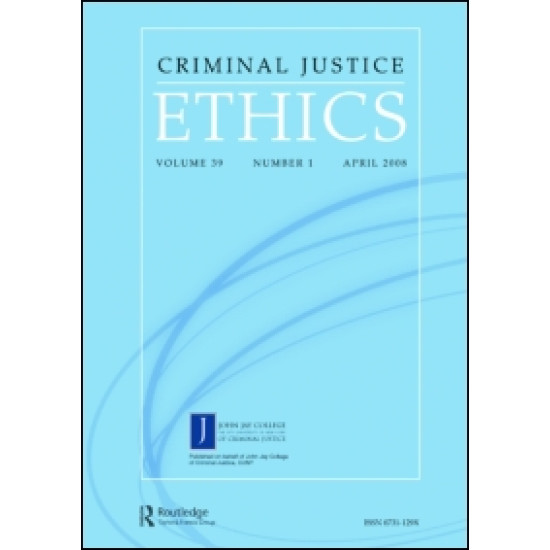
Criminal Justice Ethics addresses ethical issues arising in all of the contexts of criminal justice, exploring their conceptual, normative, and empirical aspects and the relations between them. Ethical issues concerning criminal justice require multi-disciplinary study and study that integrates theoretical, empirical, and practical concerns. One of the journal’s purposes is to enlarge and deepen the study of those ethical issues, publishing work that advances the discussions and arguments concerning both the formulation of the issues and the ways they are addressed.
The cost, complexity, and importance of ethical issues concerning criminal justice are receiving heightened public attention and the attention of legislators and government overall. The journal is uniquely well placed to participate in, and contribute to the examination of questions concerning sentencing, criminalization and decriminalization, police practices, prosecutorial discretion, the collateral consequences of incarceration, the aims and justification of legal punishment and alternatives to it, and a host of related issues not just in the U.S. and the U.K., but globally. Criminal Justice Ethics is a forum for important comparative studies as well as in-depth studies of the issues in the context of one or another particular country.
Criminal Justice Ethics is aimed at reaching a wide readership, including philosophers, criminologists in many different fields, sociologists, professors of law, political theorists, and others.

















